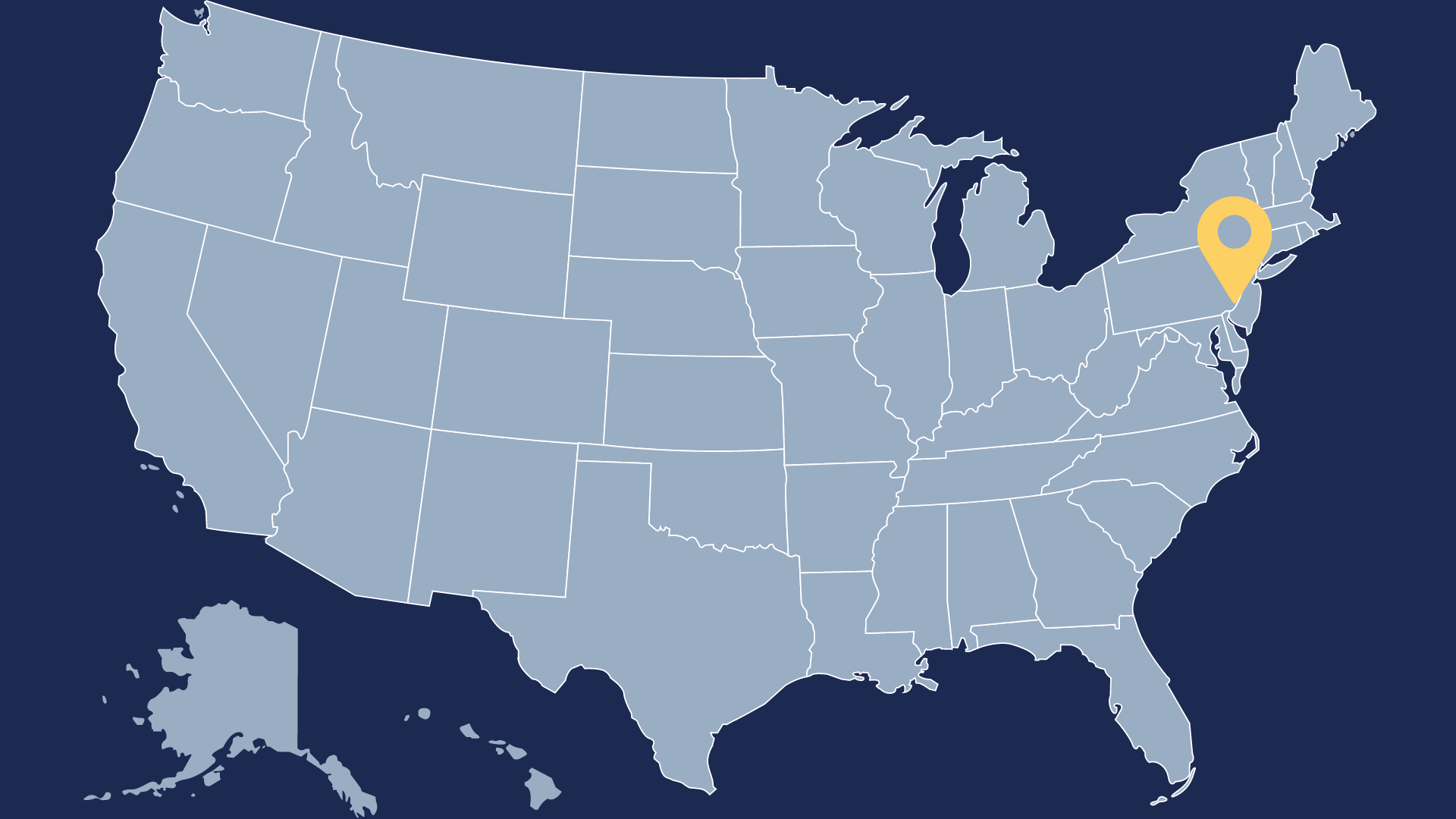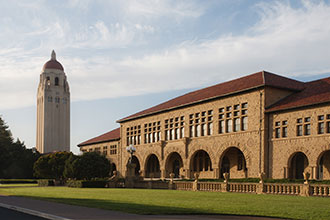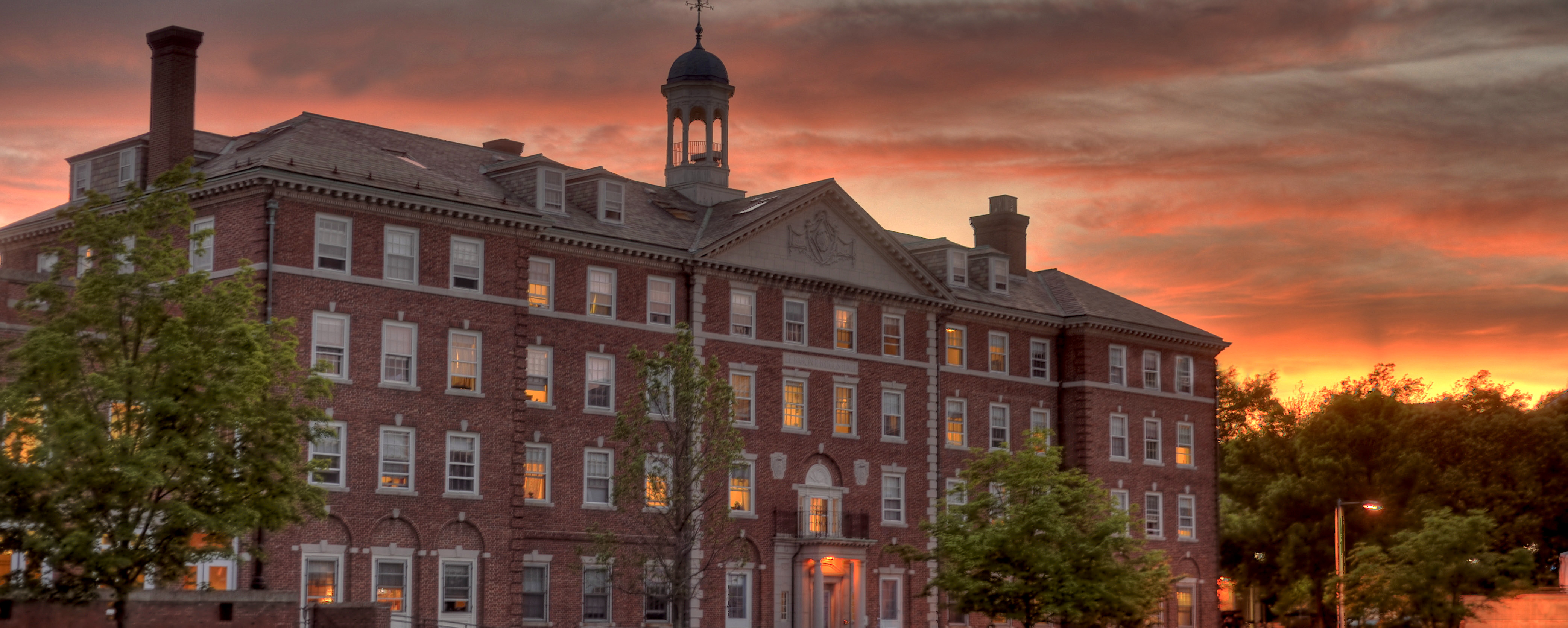REQUIREMENTS AND CAMPUS GUIDE
University of Pennsylvania
Founded in 1740, The University of Pennsylvania has a history that predates the U.S. and a special connection to Benjamin Franklin that reverberates throughout the school’s values and culture. Hoping to change America’s educational tradition for the better, Franklin established the nation’s first university with the goal of shaping civic-minded future leaders in business, government and public service. Wharton, the nation’s first collegiate business school, has since emerged as a global attraction for the brightest minds in entrepreneurship and finance, while UPenn’s engineering, law and medical schools similarly boast prestigious reputations. Aside from stellar academics, Quakers are known to excel athletically, having earned 66 Ivy League titles across 18 different sports since the turn of the century.
REQUIREMENTS AND CAMPUS GUIDE
University of Pennsylvania
Founded in 1740, The University of Pennsylvania has a history that predates the U.S. and a special connection to Benjamin Franklin that reverberates throughout the school’s values and culture. Hoping to change America’s educational tradition for the better, Franklin established the nation’s first university with the goal of shaping civic-minded future leaders in business, government and public service. Wharton, the nation’s first collegiate business school, has since emerged as a global attraction for the brightest minds in entrepreneurship and finance, while UPenn’s engineering, law and medical schools similarly boast prestigious reputations. Aside from stellar academics, Quakers are known to excel athletically, having earned 66 Ivy League titles across 18 different sports since the turn of the century.

REQUIREMENTS AND CAMPUS GUIDE
University of Pennsylvania
Founded in 1740, The University of Pennsylvania has a history that predates the U.S. and a special connection to Benjamin Franklin that reverberates throughout the school’s values and culture. Hoping to change America’s educational tradition for the better, Franklin established the nation’s first university with the goal of shaping civic-minded future leaders in business, government and public service. Wharton, the nation’s first collegiate business school, has since emerged as a global attraction for the brightest minds in entrepreneurship and finance, while UPenn’s engineering, law and medical schools similarly boast prestigious reputations. Aside from stellar academics, Quakers are known to excel athletically, having earned 66 Ivy League titles across 18 different sports since the turn of the century.
School Location:
PHILADELPHIA, PA
School Type:
PRIVATE RESEARCH UNIVERSITY
Admissions Rates:
ADMITTED: 5.9%
GENERAL INFO
SAT/ACT Scores:
Test Optional for 2024-2025
Admission Cycle
Class of 2027 Test Scores
Middle 50% SAT: 1540
Middle 50% ACT: 35
Dates/Deadlines:
Early Decision (ED): November 1
Regular Decision: January 5
School Information:
Undergraduate population:
13,338
Faculty Ratio: 8:1
Interviews Considered:
No
UPENN TIPS & GUIDE
How difficult is it to get into UPenn?
UPenn is an extremely selective university with an acceptance rate of 5.9%. The average GPA of students admitted during the 2023-24 admissions season was 3.9, while the SAT composite score (50th percentile) and ACT composite score (50th percentile) were 1540 and 35, respectively. Furthermore, 92% of the incoming freshman class graduated in the top 10% of their high school class, while 100% graduated in the top half. Prospective students should aim to earn top grades and test scores to maximize their chances of admission.
What is the campus like at UPenn?
UPenn is located in Philadelphia, the city of brotherly love. A haven for history buffs, Philadelphia is a walkable, friendly city with a rich legacy in politics, finance and the arts. In 2015, Philadelphia became the first UNESCO World Heritage City in the United States.
The city contains 67 National Historic Landmarks such as the Liberty Bell. Students enjoy cultural resources such as the Philadelphia Museum of Art, the Philadelphia Zoo, and the Reading Terminal Market, where they can experience the dynamic neighborhoods that make up the sixth-largest city in America. In addition, attending a Philadelphia Eagles, Phillies, Flyers or 76ers game is another perk of residing in Philadelphia, home to some of the most passionate sports fan bases in America.
On and off campus, students have access to amazing restaurants. Local favorites include the famous food trucks that line Spruce Street outside of the Freshman Quad. There is a movie theater on campus and several parks and green spaces such as the Morris Arboretum, a historic public garden and educational institution, located a short drive or train ride from campus. On campus, students have access to several CVS stores, Starbucks, Chipotle, and more.
UPenn is also a short 1.5-2 hour bus or train ride to either New York City or Washington D.C. Students have access to either MegaBus/Bolt Bus or 30th Street Station (blocks from campus), which makes taking trips along the Northeastern coast convenient.
In the fall of 2023, UPenn had a bustling undergraduate student population of 9,995 students across its 4 undergraduate schools—the largest being the College of Arts and Sciences with 7,406 students, and the smallest being the School of Nursing, with just 599 students.
UPenn’s 13 undergraduate College Houses are home to 100% of freshmen and 55% of the undergraduate student body as a whole. The school offers 1,000+ student groups and organizations, 300+ volunteer and community service programs, and 17 intramural leagues for students to engage with outside of the classroom. The campus also has a thriving Greek life scene, with 1 in 5 students pledging either a fraternity or sorority.
First year students enjoy a rich variety of 18 dining location options. Students have a choice between two dining plans their freshman year. In addition to meal swipes, there are also Dining Dollars that can be spent at retail cafes such as coffee shops, markets, and grocers.
Second-year students are required to sign-up for one of three dining plans—either of the two First-Year Dining Plans or an specially designed second-year plan.
What is UPenn known for?
Established and shaped in no small part by Benjamin Franklin, the University of Pennsylvania is known for having iconic ties to the history of America. UPenn has a rich culture of innovation: it became the first institution of higher learning to be named a university in 1779, it was home to the first student union in the country, it had the first woman president in Ivy League history, and it housed the world’s first electronic, large-scale, general-purpose digital computer. UPenn also has a rich athletic tradition, having sent 200 Olympians to the summer games between 1900 and 2012.
Penn is also known for having a large, tight-knit and spirited community situated within the heart of historic Philadelphia. In terms of student life, the institution has 40 chapters of fraternities, sororities and co-ed organizations, many of which have houses on and off campus. Spring Fling is also a highlight for many first-year students. The weekend-long carnival is known for its week-long celebratory nature and is often headlined by a musical performer.
How diverse is UPenn?
The University of Pennsylvania has a vibrant and diverse student body. According to the school’s 2023-24 Common Data Set, Penn’s undergraduate community was 13% International, 11.1% Hispanic/Latinx, 8.5% Black/African American (non-Hispanic), 28% White (non Hispanic), 29.3% Asian (non-Hispanic), 0.02% Native/Indigenous American, 5.4% Two or more races (non-Hispanic), and 4.5% Race/ethnicity unknown in the fall of 2023.
Men compose 45.9% of the full-time undergraduate population while women compose 54.1%.
UHow do I apply to UPenn?
UPenn seeks students who strive to promote the mission of the school’s founder, Benjamin Franklin, who sought to apply his knowledge in spheres of service to the Penn community, the city of Philadelphia, and the world. Each year, the University of Pennsylvania Admissions Selection Committee welcomes a diverse class of intellectuals who devote themselves to science, athletics, artistry, entrepreneurship and more.
The Early Decision deadline is November 1 and the Regular Decision deadline is January 5. To apply to Penn, students must submit the following:
- Common Application or Coalition Application,
- Penn-specific Supplement,
- School report,
- Official high school transcript,
- 1 counselor letter of recommendation,
- 1 teacher letter of recommendation,
- 1 other recommendation,
- Early decision agreement (if applicable),
- Mid-year report, Final Report,
- SAT or ACT (optional for the 2024-2025 admissions cycle), Alumni conversations (based on availability)
- and a $75 Application Fee.
Does UPenn have a good athletic department?
UPenn’s Quakers compete in the NCAA Division I. They have 33 men’s and women’s varsity athletic teams and have brought home 66 Ivy league titles since 2000. As home to America’s first double-decker college football stadium, UPenn hosts the iconic 128-year-running Penn Relays and even housed the Philadelphia Eagles for a decade.
In addition, Penn’s Palestra is often referred to as “The Cathedral of College Basketball” and has been the arena of choice for more NCAA games than any other location in the country. Cheering on the Quakers at campus games is a highlight for many sports fans. Students have a tradition of throwing toast during home football games—over 30,000 pieces of toast are thrown per game!
What are UPenn’s core curriculum and programs?
UPenn is a research university with four schools: College of Arts and Sciences, School of Engineering and Applied Science, the Wharton School, and the School of Nursing.
The university offers more than 90 majors across the four schools for students to choose from, and encourages students to explore their curiosities and passions. The Huntsman Program in International Relations and Business is an excellent example of programs geared towards exploring interdisciplinary connections.
Students at UPenn are given the freedom to take a variety of classes in subjects ranging from Economics and Psychology to Global Health and Anthropology in order to determine what they want to study or concentrate in, and have until the end of their sophomore year to declare their major. Penn prides itself on its 8:1 student to faculty ratio. Many classes are supplemented by weekly recitations hosted by TA’s and attended by a smaller number of students.
Since Penn is uniquely committed to giving back to the greater Philadelphia community, students have the opportunity to participate in more than 300 Penn volunteer and community service programs and take over 70 academically-based community service courses.
Such community service opportunities are mainly coordinated by Civic House (student volunteerism and advocacy), the Fox Leadership Program, the Barbara and Edward Netter Center for Community Partnerships (coordinates academically based community service), and Penn VIPS (Volunteers in Public Service—faculty and staff volunteers), which is a part of the Netter Center for Community Partnerships.
The Academically Based Community Service Courses (ABCS) offered through the Netter Center is another unique aspect of Penn education. ABCS students and faculty collaborate with West Philadelphia public schools, communities of faith, and community organizations to address critical campus and community problems in many areas such as the environment, health, arts, and education.
Penn houses 195 research centers and institutes, employs over 5,000 research faculty members, and budgeted $1.37 billion for research in 2024. Penn’s graduate students take part in meaningful research in social sciences, natural sciences, or engineering, which undergraduates can get involved in.
Students interested in learning abroad must apply through UPenn’s application. Studying abroad allows students to demonstrate that they have the academic and emotional capacity to truly thrive in a foreign setting.
Can I afford UPenn?
For the 2024-2025 year, Penn’s annual tuition will be $60,920. According to Penn’s website, students spend on average $92,288 (on-campus) and $91,474 (off-campus) annually for tuition, fees, room and board.
While the cost of attending Penn may seem astronomically expensive, Penn’s grant-based undergraduate financial aid program meets 100% of demonstrated financial need. In the 2023-24 cycle, UPenn is estimated to award $233,705,809 in need-based scholarships, gifts and grants.
Through grants and work-study funding, many students graduate with a world-class undergraduate degree debt-free. In fact, 46% of undergraduate students received grant-based financial aid in 2023-2024, with an average package of $66,222—more than the cost of tuition.
International students can also learn more about applying for financial aid here. Prospective students can also utilize UPenn’s Net Price Calculator to estimate total costs and potential financial aid funding.



